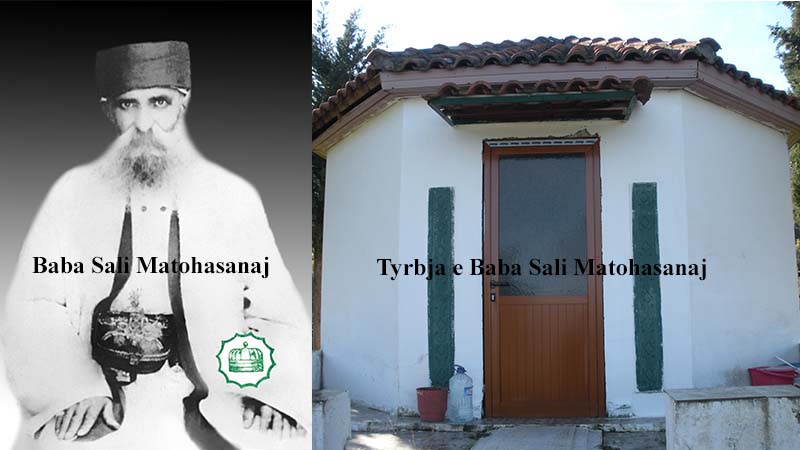
Matohasanaj, has an early history of the spread of Bektashism, where traces appear on the Saltik stone on Mount Griba, above the village and, its continuation, with Këndevica. There are other traces of faith, in Pisha, 'Good Place', Shkallzës at the top of the mountain above Dhëmblan.
The tekke was originally founded by father Salih Matohasanaj, in his house and, later, the building was erected. The Bektashi tekke there was closely associated with Baba Sali's personality. Baba Sali was born in the same village, in the second half of the 19th century. Still young, he joined the Bektashi order. After the annexation of Prizren (1878), in this tekke, the teaching of the Albanian language was secretly taught. Father Saliu taught the children of the village and established a school with his own funds, where the teacher was Feim Çami. Lops's nobility were educated in this school, such as Veis Arifi, Ismail Kasua, Zenel Fetahu, Mersin Meçja, Ali Veizi, Dulja and many others. The tekke became known in the Kurvelesh area for its Bektashi and patriotic devotion.
Baba Rexhebi tells how he brought books from Istanbul through Tripoli, Libya, from where, with the help of the local governor, Rexhep Pasha Mati, he dropped them in Albania and distributed them in southern Albania.
In 1902, in the province of Kudhes of Vlora, he was reported to the Turkish authorities by spies, arrested and imprisoned for a long time in Libya. Here he translated Fuzuli's "Hadika" into the lab dialect. Dhimitër S. Shuteriqi shows that the manuscript of this translation remained until 1950 in the tekke of Baba Saliu, in Matohasanaj. The tekke helped in the anti-fascist war (1939-19944), for which it was burned and looted by the occupiers in June 1944. The clerics served in this tekke: father Sali Matohasanaj, dervish Xhemal Alizoti (1939-1950), father Sherif Manaj (1950 -1967). The tekke was closed by the monist system in 1967.
